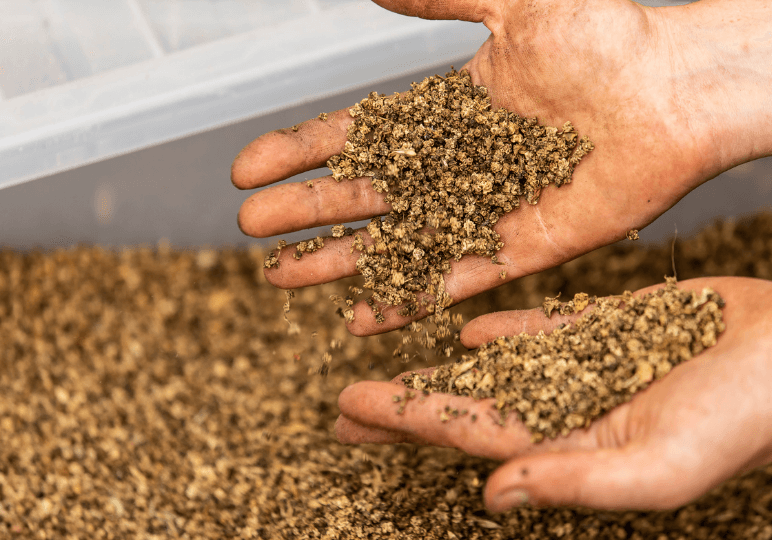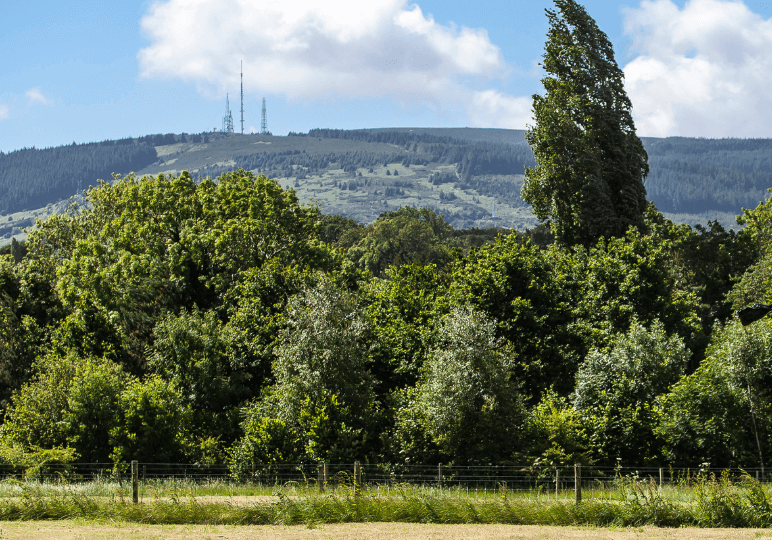Home » Airfield seed savers and pollinator programme

Airfield seed savers and pollinator programme
-
Helping the natural world to thrive in modern farming can have great results. At Airfield, pollinator programmes and seed saving are two methods that bring even greater harmony to food production and increase biodiversity.
By encouraging pollinators, especially bees and other insects, and by encouraging the natural pollination of seeds (open pollination – where plants will self-pollinate and be closely identical to the parent plants), the growers at Airfield are creating a more diverse community of pollinators that increase biodiversity and promote health in the local environment. Worldwide, pollinators are needed to pollinate 71 of the top crops that are grown for food.
Since 2015, Airfield has been a proud supporter of the All Ireland Pollinator Plan. As one of the original sign up partners, Airfield has worked within the initiative to make Ireland a pollinator-friendly country, raising awareness and educating the community about the benefits of pollinators.
The All-Ireland pollinator plan wants to make Ireland pollinator-friendly, support growers, raise awareness of pollinators and how to protect them and to track the work done in the plan. Pollinators are considered to contribute €53 million to the Irish economy. Food crops such as apples, cucumbers, tomatoes, peppers, pumpkins, courgettes, and berries are dependent on being pollinated.The All Ireland Pollinator plan has 5 main objectives and 81 actions spread between business, farming, managed land, and communities. These actions include letting wildflowers grow, leaving margins to grow wild and encouraging nature corridors.
With 97 bee species in Ireland, including only 1 honeybee, 30 of these species are under threat. Pollinators are threatened with the loss of wildflower areas, hedgerows, and habitat. Pesticide use also is poisoning them.Native woodland surrounds Airfield Estate Airfield supports the pollinator plan by growing organically and chemical-free in their 8 acres of food gardens, maintaining hedgerows, planting pollen-rich trees and shrubs, providing nesting for bees in long grasses or nettles, maximising wildflowers.
Airfield maximises the numbers and types of wildflower planting by including them in several settings, even in the car park. Where once there were labour intensive herbaceous borders, they’re now planted with perennial (last year after year) meadow flowers. Head Gardener Colm O’Driscoll says that, over the last few years, the varieties of wildflowers in the carparks have increased and they are a great way of encouraging the long term health of the meadows in the car park.
In the farm fields, pesticide use is at a minimum to care for pollinators. Field edges are left wide and hedgerows are left to encourage as much wilding as possible, with mixed planting to encourage pollinators. White clover has been planted as a pollinator plant in the silage crop. At the river edge, a wide margin is kept ensuring greater diversity of plants. There are also bird, bat, and bee boxes, with a sand pile where solitary bees can nest.
Airfield also keeps bees, looked after by Apiarist Brian O’Toole. The Airfield bees have been studied since 2018 by Trinity students measuring the numbers of pollinators on the estate.


